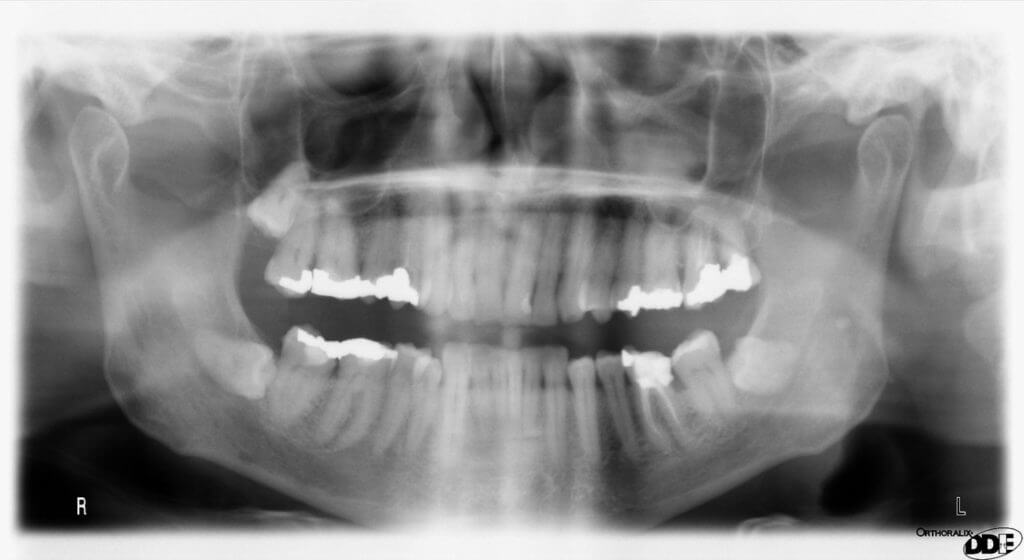09/18/2018
Article by Dr. Leaver & Dr. Gardner

When you begin orthodontic treatment with Leaver & Gardner Orthodontics, you tend to begin the journey with a number of questions. This is particularly true if you’ll be wearing traditional braces. You may find yourself asking things like
How long will I need to be in braces?
Will having them put on hurt?
Will I have any restrictions on the foods I can eat?
How often will I have follow-up appointments?
Your orthodontic journey will be a learning process, and along the way, you’ll find the answers to these questions and more. You’ll also become more knowledgeable about orthodontics in general, and your own teeth specifically. Though you will likely become familiar with the way your teeth grow and move as it relates to your braces, there’s one set of teeth we’re willing to bet you won’t learn quite so much about – your wisdom teeth! These late-comers aren’t an especially common topic of conversation when it comes to orthodontics, so may be unaware of the part wisdom teeth play in your overall oral health.
As the last of your teeth to erupt, wisdom teeth don’t normally show up until you’re in your late teens or early twenties. We have patients who worry that this timing will mean a smile that has been successfully straightened by braces will be affected by the wisdom teeth coming in. Let’s take a closer look at what your wisdom teeth actually are, what you can expect when they erupt, and if this should concern you as a braces patient!
What are wisdom teeth?
Once upon a time, our ancestors relied on a diet that was rich in coarse foods like roots, nuts, and meats that required large, powerful jaws to chew. As our diet evolved and became more varied, our jaws began to shrink in size, resulting in smaller mouths which may not have enough room for wisdom teeth to fit in comfortably anymore. This isn’t the case for everyone by any means, and many people will find their wisdom teeth come through in proper alignment with no issues whatsoever besides some slight tenderness. If this is the case, further action is rarely necessary. However, there are times when erupting wisdom teeth can be painful and uncomfortable. Because the wisdom teeth grow in stages rather than all at once, there are quite a few opportunities for discomfort throughout the eruption process. This may have you asking…

Will I need to have my wisdom teeth removed?
If there’s not enough room in your mouth for your wisdom teeth to come through, it can put pressure on the adjacent teeth. Another issue arises from the wisdom teeth coming in sideways, as they can become jammed behind the last tooth in the mouth. This is commonly referred to as impaction, and it can lead to painful, swollen gums. Partially erupted teeth are also difficult to clean thoroughly, which can increase your risk for recurrent infections. This can cause potential damage to the healthy molars beside them as well.
Experienced orthodontists like Dr. Leaver and Dr. Gardner are able to tell how your wisdom teeth are coming in by taking an x-ray of your mouth. Based on the results of that x-ray, along with any problems your wisdom teeth are causing in your mouth, our doctors may recommend further treatment, including wisdom tooth removal. In general, wisdom teeth will only need to come out if they are causing pain, pressure, or other issues in the mouth.
Can my wisdom teeth undo the orthodontic progress I’ve made?
In your late teens and early twenties, it’s common to see a slight shifting of the teeth begin. This is referred to as relapse, and because it tends to happen around the same time your wisdom teeth begin to erupt, many people believe the two must be related.
To test this theory, the University of Iowa did a study which involved placing sensors between the teeth to compare the amount of pressure on them with and without wisdom teeth present. They found there was no difference between the two. In other words, our wisdom teeth don’t exert enough pressure on the surrounding teeth to cause them to move. So if wisdom teeth don’t cause shifting, what does? As it turns out, the answer is surprisingly simple: we get older.
As we age, our teeth begin drifting naturally. They also start to show some signs of general wear and tear. This can cause our teeth to overlap and move slightly forward, with the upper teeth pressing the lower teeth in towards the tongue. Residual jaw growth can also force the teeth into undesirable positions. If you’ve been a patient with Leaver & Gardner Orthodontics for any time, you’ve probably heard us talk about how important it is to wear a retainer once your braces come off. This natural drifting is precisely why! By wearing your retainer as directed, you’ll be giving your teeth the best chance to stay as straight as possible after your braces treatment is complete.

Be wise: trust your smile to Leaver & Gardner Orthodontics
Here at Leaver & Gardner Orthodontics, we’ve got a talented and dedicated team in place to create the most rewarding orthodontic experience possible for you. We’re committed to your comfort, care, and smile! You can count on us to guide you towards a beautifully straight smile that will last a lifetime. If your wisdom teeth happen to start erupting during the course of your orthodontic treatment, you’ll be able to continue easily and without interruption.
While it’s unlikely that your wisdom teeth will affect the straighter smile you’ve achieved with braces, every patient and every case is different. If you’re worried about how your own wisdom teeth are erupting, you should schedule an appointment with your general dentist to discuss the way these teeth are growing in. We’ll also be happy to set your mind at ease about how this growth shouldn’t be an issue for your smile, so give us a call and we can address any questions or concerns you have!
© 2025. All rights reserved. | Leaver & Gardner Orthodontics